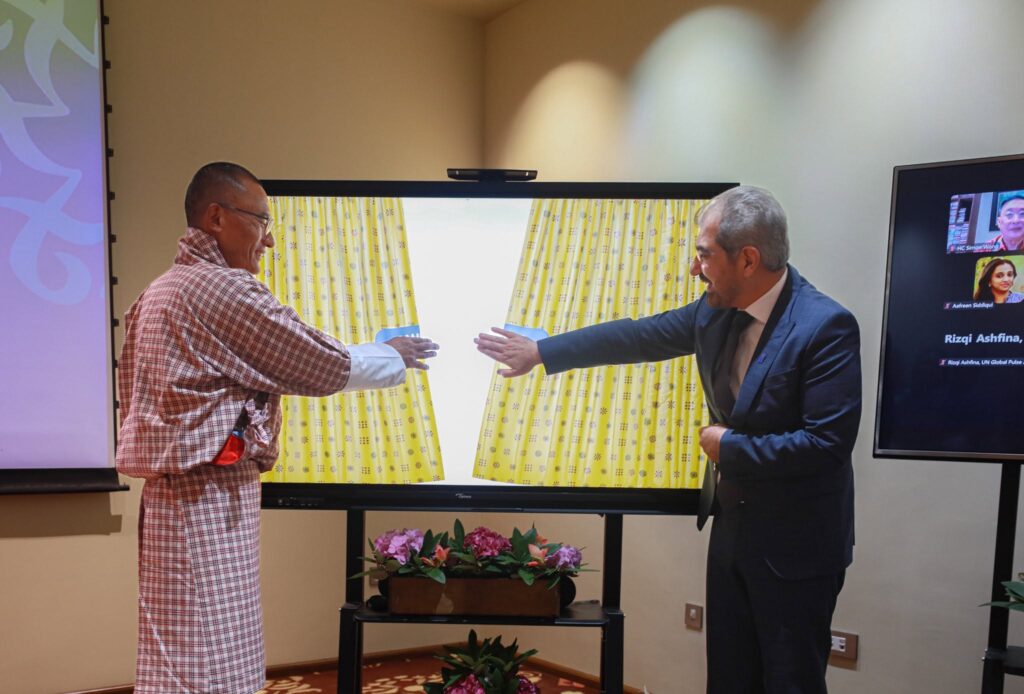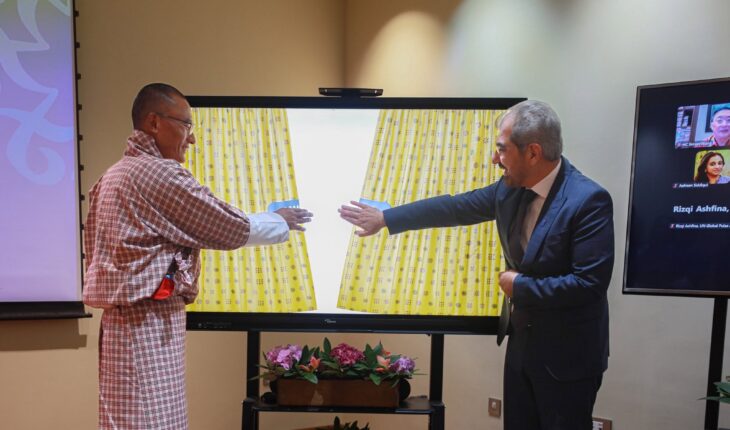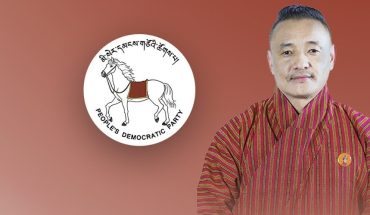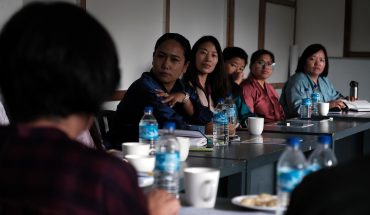
The organization will seek to accelerate public sector innovation
NGAWANG JAMPHEL
Thimphu
The Office of the Prime Minister (PMO) in collaboration with the United Nations Development Programme (UNDP), officially launched the Bhutan Innovation Lab on July 10, in Thimphu.
This newly established Lab, now institutionalised within the Office of the Prime Minister and Cabinet, aims to transform the way the public sector functions by encouraging innovation, embracing risk, and designing inclusive solutions to national challenges.
The Lab is expected to play a key role in advancing the 13th Five-Year Plan and Bhutan’s 10X Economic Transformation Vision, as outlined in the country’s 21st Century Economic Roadmap.
It will act as a central platform to support government agencies, private sectors, academia, civil society, and citizens in jointly creating and testing impactful policy solutions.
Speaking at the launch, Prime Minister Dasho Tshering Tobgay emphasized that innovation is essential for Bhutan’s progress and resilience in today’s rapidly changing world.
“Innovation is never easy. It is often risky, uncomfortable, and unpredictable. But as a country, we can no longer afford the safety of sticking to familiar routines or outdated procedures,” the Prime Minister said. “If we are to transform, to lead, and to inspire, we must dare to innovate—boldly, deliberately, and with purpose.”
He assured government agencies and public servants that the Lab would support innovation at all levels. He encouraged every ministry and department to come forward with ideas and promised that his office would take responsibility for the risks.
“If you want to innovate—go ahead. We will recognise you. If you’re afraid of the risks—I will take the risk. If you don’t know how—come to us. Let’s work together. That is what the Bhutan Innovation Lab is,” the Prime Minister added.
UNDP Resident Representative Mohammad Younus said that the Bhutan Innovation Lab is a natural extension of the collaboration between the UNDP and the Royal Government of Bhutan on the 21st Century Economic Roadmap.
“The Bhutan Innovation Lab is a direct response to this bold vision. UNDP is honoured to have partnered on both the roadmap and the establishment of the Lab,” he said. “As the Lab reshapes and redefines development, UNDP will remain a steadfast partner in this innovation journey.”
The Lab is already at work on several major national challenges. One of its first key initiatives focuses on improving the appointment process at the Jigme Dorji Wangchuck National Referral Hospital (JDWNRH)—Bhutan’s largest hospital.
This effort will involve health professionals, government agencies, and citizens to work together and examine the current system and identify problems.
The team, including the National Medical Service and Ministry of Health, developed a set of solutions to make the process more efficient, user-friendly, and patient-centered. These improvements are expected to be implemented by August or September 2025.
Another major effort by the Lab is a systems-based analysis of Bhutan’s tourism sector. The two-month study identified key barriers and risks in the industry, as well as new opportunities to support national economic goals.
The Lab is now designing sequenced, high-impact solutions that can be implemented to support sustainable and inclusive tourism growth.
The Bhutan Innovation Lab will also introduce a new way of policymaking—one that is based on real-time data, stakeholder collaboration, and rapid experimentation.
Instead of waiting for lengthy processes or fearing failure, the Lab encourages teams to test ideas on a small scale, learn from them, and scale up what works.
By working in this way, the Lab will support government agencies in making smarter and more adaptive decisions.
Its work also aligns with the increasing global recognition that governments must become more flexible and innovative to address complex, interconnected challenges such as climate change, economic inequality, and health crises.
Additionally, the Lab will serve as a neutral and collaborative space where new ideas are tested, adjusted, and scaled to fit Bhutan’s unique development context.
It will bring together voices from all walks of life to co-create solutions—from policymakers and civil society to academics, entrepreneurs, and ordinary citizens.
The Bhutan Innovation Lab reflects Bhutan’s broader vision to become a high-income, carbon-neutral, and inclusive society. By placing innovation at the heart of governance, the Lab aims to modernise the public sector and better serve the people of Bhutan.
As challenges become more complex and unpredictable, the Prime Minister stressed that the greatest risk is doing nothing.





